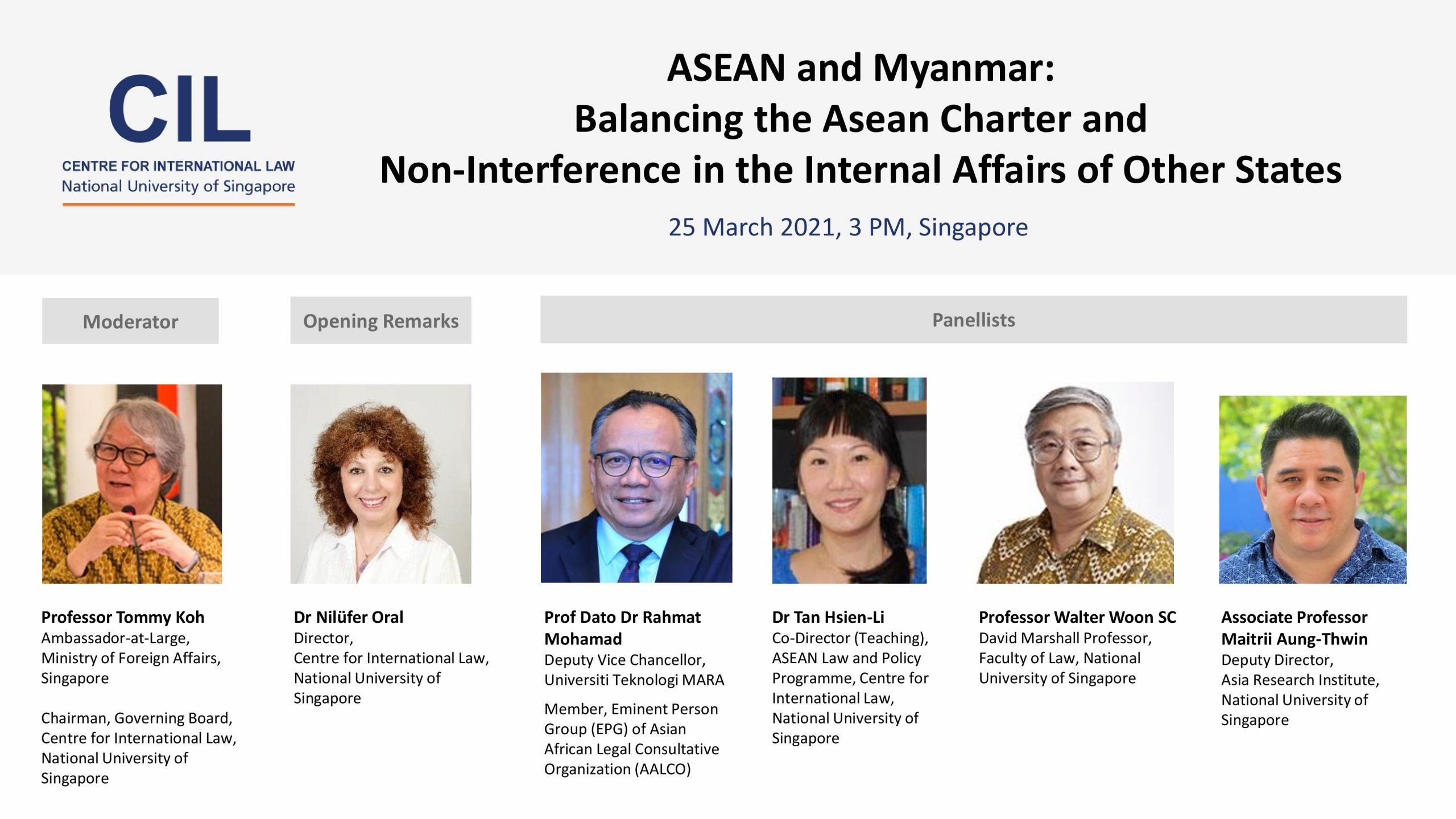Ten conclusions of the CIL roundtable on
“ASEAN and Myanmar: Balancing the ASEAN Charter and Non-Interference in the Internal Affairs of Other States”
held on 25 March 2021
By Tommy Koh
This afternoon I moderated an important discussion on the crisis in Myanmar.
The webinar was organised by the Centre for International Law of NUS. The four speakers were: Professor Walter Woon of the NUS Law School, Professor Rahmat Mohamad of the Universiti Teknologi MARA of Malaysia, Professor Maitrii Aung-Thwin, Deputy Director of the Asia Research Institute at NUS, and Professor Tan Hsien Li of CIL.
I would summarise the points of agreement as follows:
First, what happened on the 1st of February was a military coup.
Second, the civilian leaders of Myanmar should be released from detention.
Third, the killing of the unarmed protestors must stop.
Fourth, the military regime is not the legitimate government of Myanmar.
Fifth, ASEAN must persuade the military and NLD to return to the negotiating table and conclude a new compact for power sharing and a new roadmap to democracy. ASEAN must engage all the parties, including the military as a facilitator and mediator and as member of the family.
Sixth, we support the proposal of the President of Indonesia to hold a special ASEAN Summit to stop the bloodshed and to find a diplomatic solution acceptable to all the parties In Myanmar.
Seventh, we do not think a foreign military intervention, under the doctrine of Responsibility to Protect, is feasible or constructive.
Eighth, it is not an interference in the internal affairs of Myanmar for ASEAN to speak quietly to the parties to persuade them to do the right thing, respectfully and without threats, as members of the family.
Ninth, the commitment to constitutional government in the ASEAN Charter means that ASEAN is against coups and other unconstitutional changes of government.
Tenth, the only way to solve this difficult situation is the ASEAN Way, by quiet diplomacy, by appealing to the country’s future and the people’s welfare and by offering Indonesia as a model of a country which has made a successful transition from military rule to civilian rule and from authoritarian rule to democracy.


